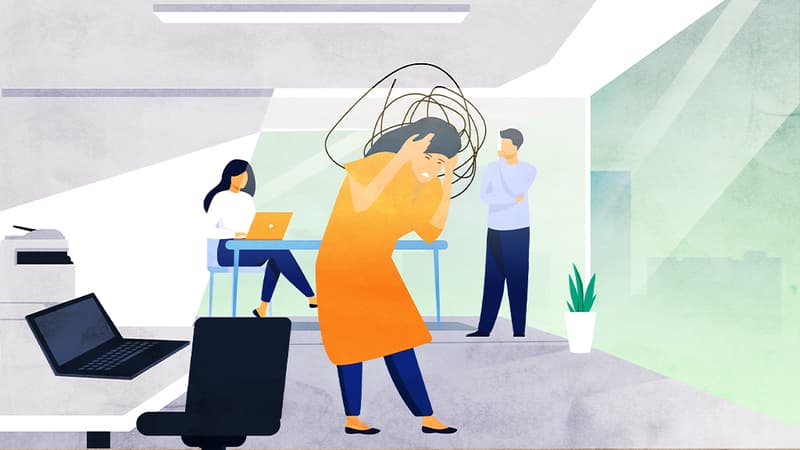Heat, fatigue, mental fog … Menopause, which refers to more than 17 million French women 45 years or older, is still difficult to address at work, while more than eight out of ten women have felt shame related to symptoms in their activity.
“The legal days are really hyper violent,” he informs Samantha, 54, who works in marketing and who, like other witnesses, have preferred to silence their name.
She judges the “violent” taboo around the subject, because “it is dirty, that is not said.”
A quarter hides their symptoms out of fear
According to an opinionway survey published on Wednesday and led to a thousand menopausal women, one in four reports that he has hidden symptoms for fear of being discriminated against at work.
They also have 25% to estimate that talking about this issue in business probably meets their prejudice professionally, according to this survey for the Astellas pharmaceutical group.
And even if 66% believe that talking is legitimate, a majority (53%) tells anyone in their business. However, 87% of women interviewed felt at least discomfort in work linked to symptoms: suffocation, night sweats, mood disorders, joint pain, headache …
An average loss of 10% income
Faced with this natural agitation that intervenes at 51 years on average in France, some women may have to reject a promotion, or even leave their position.
The economist Pauline Grosjean cites AFP a study published in March in relation to Swedish and Norwegian data, which provides “a cost of the individual economic impact of menopause.”
Evaluated “10% of income on average”, it is explained “to a large extent by reducing work hours and absences,” she says. Mathilde, 54, is confident that he left his executive work in the industry in December, in particular due to his “terrible” symptoms.
This administrative secretary in the construction industry, recently accompanied by the “Disdamedonc” association, dedicated to women’s health, said they understand those who “die” in the face of symptoms.
“Everything acquires an emotionally exponential dimension”
Pierre-François Ceccaldi, professor of obstetric gynecology at the Beaujon hospital (AP-HP), receives a dozen patients concerned with menopause every week and its repercussions “both in the private sphere and in the professional sphere.”
They reach the fifties, they have positions of responsibility, the children leave the house, think they are “silent” “, and then PAF, this hormonal deficiency suddenly,” he told AFP.
Menopause for about three years, Samantha confirms this bad moment. She deplores that “it is not heard and understood”, when in relation to “the rules and menstrual pain” has really improved in the world of work.
For Dr. Ceccaldi, who co-founded the “Menopause club”, an information and free assistance platform funded by Ars île-de-France, is “many small things that accumulate” those that make women worry “no longer feel in capacity or competition during this period.”
But for patients who say “DR, I have the impression that I am at the end of the roller”, he responds a “positive message”: “This is just a stage, half of life (…) We will help you take this course.”
But for some, time is for a long time as Olivia Begyn, almost 50 years and before menopause for about ten years. “I am still not menopausic with my great despair,” he informs this vocal and therapist coach, emphasizing that “with hormones” that go in peanuts “,” everything acquires an emotionally exponential dimension. “I think that when you have become (…) a beautiful old woman, it goes,” he anticipates it. This is what is difficult. “
Source: BFM TV


